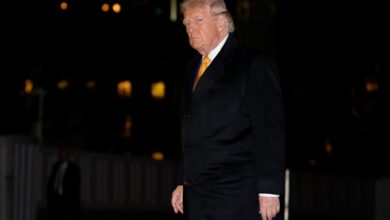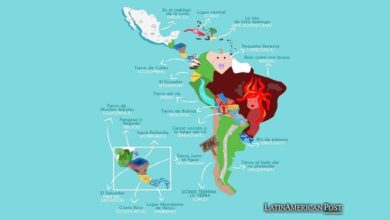Before the flight of King Juan Carlos I, signs of weakening of this regime are beginning to be seen, very different from what we know in Latin America.

After the recent scandals in the Royal House, people began to talk about the end of the Spanish monarchy. / Photo: © Casa de S.M. the king
LatinAmerican Post | Ariel Cipolla
Listen to this article
Leer en español: ¿Está la monarquía española en riesgo de extinción?
Recently, we saw a scandal for the Spanish crown. The emeritus king Juan Carlos I decided to go into exile from the country, according to the Semana website. It is an atypical situation, given that it is being rejected by the vast majority of Spaniards, in addition to the fact that the king is being investigated for several cases of corruption.
In other words, they are already beginning to speak of the “beginning of the end of the Spanish monarchy”, which could disappear during the reign of his son, Felipe VI. Although it is said that it was a consensual decision with the Pedro Sánchez government, the reality is that the monarchical figure is far from the one that allowed the country to be guided to democracy after the dictatorship of Francisco Franco.
The figure of the king no longer symbolizes the "union" of the Spanish, but, on the contrary, political fissures begin to appear. This is why the website of La Nación de Paraguay highlights that he went into exile "to save an already fragile and worn-out Spanish monarchy." Let's see, then, what happens with this very particular situation.
The Spanish monarchy and its internal fissures
The departure of the emeritus king of Spain, Juan Carlos I, led to changes in the leadership of the country. At least, in terms of the authority that this very particular and little explained figure has within the government. Thus, we see that El Tiempo Latino wonders if "the Spanish monarchy will be extinguished", because it prefers not to attack the current king, his son Felipe VI.
The institution does not seem to have the same political credit as 15 or 20 years ago, at which time it seemed to be highly valued by Spanish citizens. The Antena3 website includes a survey from NC Report, which says that, at present, only 55% of Spaniards support the monarchical system that they now have.
In any case, the majority seems to coincide with the decision that Juan Carlos I should establish his residence outside the country. Although his reign is considered to have been fruitful, what is in doubt is not what happened during the government , but the system of which he is part.
The website of El Confidencial asks what the Spanish monarchy is for in the XXI century. It is, then, an institution that seems anchored in other times, where power was trasmitted generationally and unilaterally. This is an unknown figure in Latin America, where our highest authority is the Head of State, without the need for a king.
Also read: Outbreaks and demonstrations due to COVID in Europe
The Constitution of Spain emphasizes that the King has the ability to "propose the candidate for President of the Government", in addition to the supreme command of the Armed Forces. At the time, they opted for this structure to guarantee a transition between the Franco dictatorship and full democracy. Therefore, royals currently seem to have a more testimonial position, more suitable for ceremonies.
It could not even be said that the king is a figure who acts as the country's ambassador, since that is what the ambassadors themselves are for. So what are they for? Basically, the idea that they are figures that can generate consensus and mediation with the governments of the day is mentioned. However, this scandal seems to leave “severe institutional damage”, as mentioned by the El Independiente media, because it will force the reinforcement of constitutional regulation to maintain the system.
Given this complex context, we see that the New York Times website mentions that "only a profound reform can rescue the monarchy from its worst crisis." Everyone knew that the king was naked, but they decided to look the other way. Therefore, it remains to be seen how social humor continues with Felipe VI, who will have to deal with the history of his family, but also with a system that becomes obsolete in the middle of 2020.





